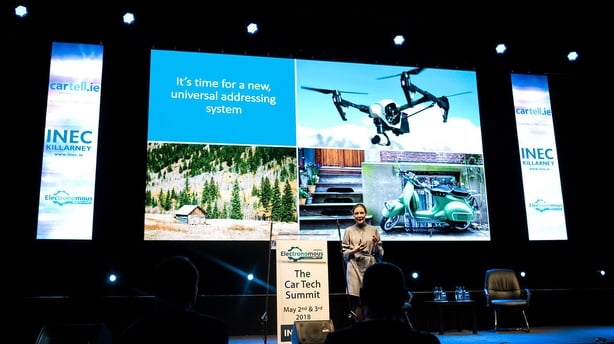Has your sat nav ever brought you to a place you did'nt want to be ? Or have you ever followed directions that turned out to be hopelessly inaccurate ? One company has come up with a rather ingenious solution that lets you arrive where you want and a taxi driver find precisely where you are.
We've come a long way since satellite navigation was first introduced and the folded map in the glove compartment became largely redundant (although a surprising number of us still use one) but we still don't have the kind of accuracy we might expect. Type one incorrect letter into a sat nav programme - Acadia instead of Acacia Drive, for example - and you could end up in two very different parts of the same Californian city. There can be two No 30's at either end of a very long street - not very satisfactory if you are lugging a suitcase after the taxi has dropped you off. Or you have just parked in a parking location and found the last space.
Now a company has come up with an ingenious solution to the problem of "addresses that don't do what they are supposed to do, addresses that are not fit for purpose". what3words has simplified everything by giving a unique name to GPS co-ordinates. It's a simple but very clever system that has divided the world into 57 trillion squares that have already been mapped. So, for example, three random words chosen from the dictionary - vitamin. scout. display. - is the name given to a restaurant near Kyoto in Japan. And memory.shall.safety are the words identifying a piece of street art in Limerick.

Clare Jones addressing the Cartell Electronomous car tech summit in Killarney. Picture: Mel Maclaine, the Photo Project.
"With a standard system I can look for Harrod's in London and I'll get a pin on a map but it won't tell me where the collection point is. With what3words that location will have a specific name and you will be directed to that point exactly. We can also let you know where on a beach you might like to tell your friend to meet you for a yoga session, or you can identify exactly the space in your back garden where the Amazon drone can drop your package" says Clare Jones, Chief Communications Officer for what3words.
She was a speaker at the Cartell "Elecrtonomous" conference in Killarney this week. The conference was looking at the future of autonomous driving and electric cars. Her company has just completed a deal with Mercedes, whose new A-Class has been fitted with the app for what3words. Drivers can now just speak the identifying three words for their chose location into the car's sat nav and off they go.
Even bus stops in Ulan Bator, the capital of Mongolia, have benefitted from the app and you can tell exactly which one to alight at, without a word of Mongolian.
"We have already done one exercise with a delivery company in London and found their delivery staff saved 30 per cent of normal delivery time in the last mile of their journey, because they were going to a very specific and uniquely identified location", says Jones.
But if you don't like the three word moniker assigned to your address or find it boring, can you invent your own or swap it, RTE Motors asked Ms. Jones. "Unfortunately, not but you might care to pick the adjoining three square metres and see if that works for you".
The system is now used in 127 countries, by a number of car companies, many organisations - including the UN - and is used in 26 languages. Now, that's what you call a global system. Here's how it works.


